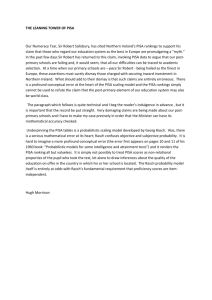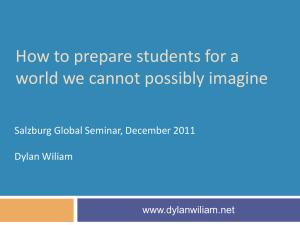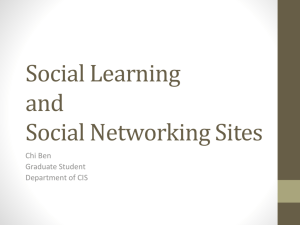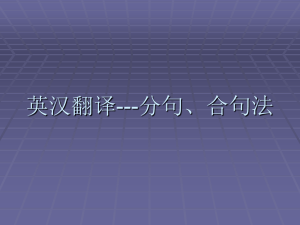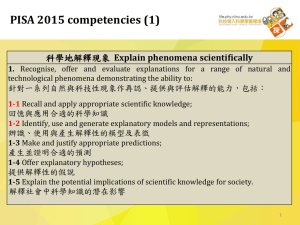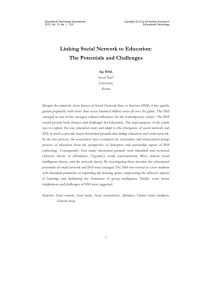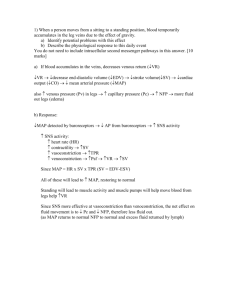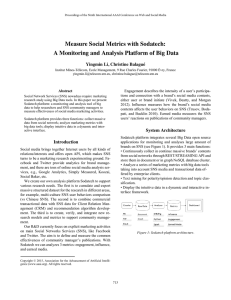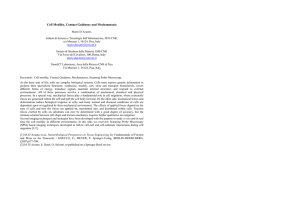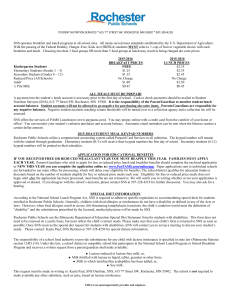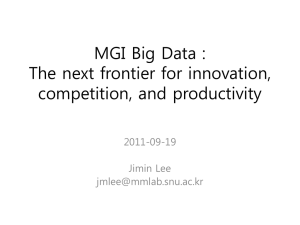Workshop “Catholics, Modernity and the Media”
advertisement
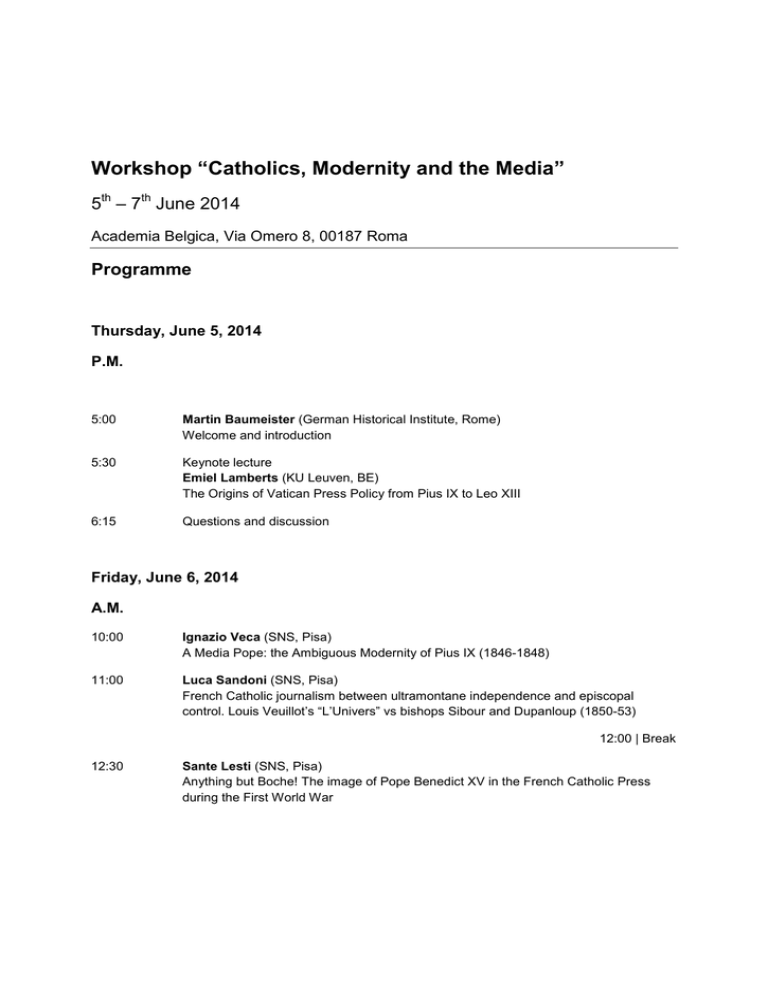
Workshop “Catholics, Modernity and the Media” 5th – 7th June 2014 Academia Belgica, Via Omero 8, 00187 Roma Programme Thursday, June 5, 2014 P.M. 5:00 Martin Baumeister (German Historical Institute, Rome) Welcome and introduction 5:30 Keynote lecture Emiel Lamberts (KU Leuven, BE) The Origins of Vatican Press Policy from Pius IX to Leo XIII 6:15 Questions and discussion Friday, June 6, 2014 A.M. 10:00 Ignazio Veca (SNS, Pisa) A Media Pope: the Ambiguous Modernity of Pius IX (1846-1848) 11:00 Luca Sandoni (SNS, Pisa) French Catholic journalism between ultramontane independence and episcopal control. Louis Veuillot’s “L’Univers” vs bishops Sibour and Dupanloup (1850-53) 12:00 | Break 12:30 Sante Lesti (SNS, Pisa) Anything but Boche! The image of Pope Benedict XV in the French Catholic Press during the First World War P.M. 02:30 Francesco Tacchi (SNS, Pisa) “The propaganda of mistake can be fought just by spreading the truth”: genesis and development of the Opera Nazionale per la Buona Stampa in Italy (1915-1918) 03:30 Patricia Quaghebeur (KADOC-KU Leuven, BE) The involvement of religious institutes in the ‘Good Press’ strategy of the Church. The case of the publishing houses of the abbey of Averbode, 1897-2014 04:30 Raffaella Perin (Università Ca’Foscari, Venezia) “The radio has no rivals in itself”. Pius XI and the birth of Vatican Radio 05:30 | Break 06:00 Keynote lecture Frank Bösch (Universität Potsdam, DL) The Transformation of Religion in the Age of Television Saturday, June 7, 2014 A.M. 09:00 Elena Mazzini (German Historical Institute, Rome) Modernisation, Catholicization and Grass roots perspective. The case of Italian Diocesan press during the Thirties 10:00 Matteo Baragli (SNS, Pisa) The ‘Great Political Novelty’ of the Fascist Modernity. The Italian cleric-fascist press and the birth of the Regime (1919-1929) 11:00 | Break 11:30 Florian Bock (Eberhard Karls Universität, Tübingen, DL) Der Fall „Publik“ – katholische Presse in der Bundesrepublik um 1968 12:30 Martin Baumeister (German Historical Institute, Rome) General conclusions and planning of future activities
